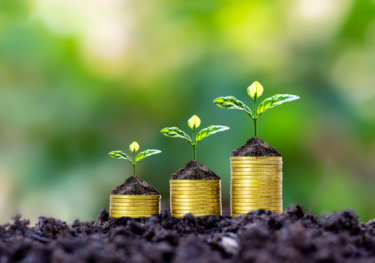Blog | 23 Jan 2024
Sustainability-related finance disclosures are a win for the economy

Shilpita Mathews
Senior Economist, Economics & Sustainability

Outside the financial sector, people might be forgiven for dismissing the Sustainable Finance Disclosure Regulation’s (SFDR) latest public consultation as one more addition to the European Commission’s myriad of regulatory measures and reforms. That would be a mistake as the SFDR will have implications not only for firms operating in the financial sector but also for all the companies they facilitate investment in — and those companies’ broader stakeholders.
The European Commission introduced the SFDR in 2021 to require financial managers to disclose how they consider sustainability risks as part of their investment process. The main aim of the SFDR is to improve transparency, comparability, and the quality of sustainable investing.
The Sustainable Finance Disclosure Regulation and other sustainability disclosure initiatives are part of a broader movement to add transparency to the economic system in regard to sustainability performance. From a financial perspective, this is about mitigating risks posed by different elements broadly defined as “sustainability-related”. This includes greenhouse gas emissions, dependency on environmental assets, and human rights performance. Identifying these risks and either avoiding or mitigating them will improve risk-adjusted financial performance.
Alongside improving the performance of financial capital, this is also an opportunity to achieve the bigger societal goal of shifting capital allocation away from unsustainable economic activity towards economies that meet global climate and nature targets. Investors can have a first-mover advantage by investing early in sustainable activities. It is a worthy aim, but no one should expect an easy ride.

Making investing transparent
Currently, the transparency requirements under the Sustainable Finance Disclosure Regulation vary depending on the type of investment product. Investment products are classified under three categories (Article 6, 8, and 9) — products deemed to have more sustainability characteristics have more stringent requirements on disclosures. However, the system is not perfect, and there have been concerns that the regulation is being used as a labelling system, rather than achieving its aim of promoting greater transparency. In view of this, many asset managers are calling for a change in the regulation. For instance, a key suggestion is to include a “transition investments” category, which would encourage fund managers to bring measurable improvements to the sustainability profile of assets they invest in, so encouraging investment in activities that promote economic transformation.
Adopting a broader transition-oriented approach in disclosure requirements, as is being done in the UK’s equivalent Sustainable Disclosure Framework, can frame the conversation away from a box-ticking regulatory exercise to a unified sectoral effort to catalyse investment in sustainable activities. Investors can use information from the Sustainable Finance Disclosure Regulations to seize sustainable investment opportunities. Investors can also be rewarded with risk-adjusted returns, by accounting for all sustainability-related disruptions that their portfolio is exposed to.

Preventing the dominoes from falling
The increasing number of sustainability regulations across the world can be overwhelming to financial actors, adding complexity alongside promoting transparency in the financial system. Therefore, it is important to take a step back and consider the purpose of sustainability disclosures — identifying and reducing financial risks due to sustainability-related disruptions.
In the natural environment, these disruptions can have a domino effect across the economy, rippling up to the financial system via their counterparties. For example, disruption to agriculture in China impacts the production of fibres for textiles for upholstery, as well as derived products such as lubricants for machinery. This, in turn, affects the performance of EU-based automotive manufacturers that rely on these products, and subsequently their global investors. Neglecting the management of risks across the value chain can result in what economists call systemic risk, or the possibility that disruptions reverberate and trigger instability in an entire economy.
Forward-looking financial actors have started to join these dots and are calling for better alignment between the sustainability disclosure regulations they face and the reporting requirements for their counterparties.
The Corporate Sustainability Reporting Directive (CSRD) is the regulation that covers most companies in the EU, requiring them to report on their sustainability impact and risks. Given that the finance-sector focused Sustainable Finance Disclosure Regulation came into force before the company-focused CSRD, financial actors have concerns on alignment between the two disclosures.
Specifically, they have questions on how to tackle Sustainable Finance Disclosure Regulation requirements on topics that their investee companies deem “non-material” in their CSRD disclosures, asserting that there is a risk that companies will not disclose information financial actors themselves consider material.

Better evidence means better performance
While much of the discussion is rather technical, the implications of getting it right are real. If you are an individual or organisation with financial investments, surely you want potential losses from long-term climate and other sustainability-related impacts explicitly considered. Individual companies are best placed to disclose on what their business activities are exposed to. In fact, investors have a fiduciary duty to consider all risks, including sustainability-related risks, which may jeopardise your money. But getting meaningful evidence with which to act is challenging.
For business leaders and investment managers, having access to better information can help with decision-making. Of course, what those specific decisions are is still largely up to their expertise and discretion, but greater transparency means the market can better judge their performance, rewarding sustainability-inclusive financial performance, and building resilience into the economy.
Author

Shilpita Mathews
Senior Economist, Economics & Sustainability
07443323669

Shilpita Mathews
Senior Economist, Economics & Sustainability
London, United Kingdom
Shilpita joined Oxford Economics’ Economics & Sustainability team, bringing valuable experience from roles at Deloitte, Vivid Economics and McKinsey & Company, with a focus on sustainable finance and climate and nature risk assessment. Her work has spanned public and private sector clients, with a focus on financial institutions.
Shilpita holds a First-Class BA (Hons) in Land Economy from the University of Cambridge and a MSc in Environmental Economics & Climate Change (Hons) from the London School of Economics and Political Science.
Tags:
You may be interested in…

Post
Going beyond the NGFS and IPCC climate scenarios
This blog post emphasises the critical need for a comprehensive analysis in climate risk management, recognising the value of NGFS and IPCC scenarios while advocating for tailored, nuanced approaches that leverage additional insights and data.
Find Out More
Post
The urgent need to address nature loss implications for agriculture and beyond
Our society and economy are deeply intertwined with nature, but human activity has pushed nature into crisis—one-third of the world’s forests are gone, the rate of species extinctions is accelerating, and scientists have issued stark warnings about the rapidly declining health of ecosystems. At the heart of this crisis is a profound irony: we are jeopardising the very systems upon which our life depends.
Find Out More
Post
To bee or not to bee—a small insect’s place in the world economy
In recent years, UK government figures have pointed towards a long-term decline in bee populations, and perhaps more worryingly, a study in the US found a decline in the honey yield per colony due to environmental degradation. Given this concerning evidence, World Bee Day was established by the UN General Assembly in 2017 to highlight the important role bees and other pollinators play in global food production, and how vital it is that we support them.
Find Out More